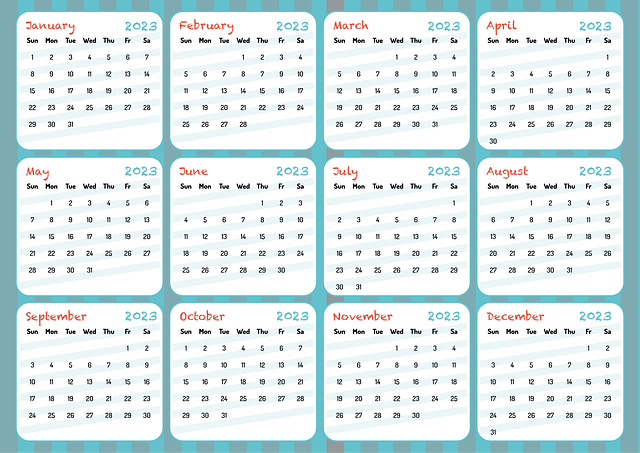Creating a secure financial future in South Africa starts with understanding your current position through tracking income and expenses. Using a checklist, categorize costs into fixed and variable, set short-term and long-term goals, and create a budget for wise money management. Personalize your financial plan based on individual needs, market trends, and local economics for optimal savings and investment strategies guided by a comprehensive Financial Planning Checklist South Africa.
“Unlock your financial future with our comprehensive guide tailored for South Africa. Financial planning is a journey that requires understanding, goal-setting, and strategic actions. This step-by-step checklist will equip you to take control of your finances by first assessing your current situation: tracking income and expenses. Then, define clear goals, create a balanced budget, and explore saving and investment strategies unique to South Africa’s landscape. By the end, you’ll be empowered to make informed decisions and build wealth.”
- Understanding Your Financial Situation: Tracking Income and Expenses
- Setting Clear Financial Goals: Short-term and Long-term
- Creating a Budget: Allocating Resources Effectively
- Strategies for Saving and Investing: Building Wealth in South Africa
Understanding Your Financial Situation: Tracking Income and Expenses

In your financial planning journey, understanding where you stand financially is the first step. This involves tracking your income and expenses – a crucial part of any Financial Planning Checklist South Africa. Start by gathering all your bank statements for a certain period to get an accurate picture of your inflows and outflows. Categorise your expenses into fixed (like rent or car payments) and variable (grocery, entertainment). This categorisation will help you identify areas where you can cut back and save more.
Regularly updating your financial records is key. Consider using budgeting apps or spreadsheets to track your spending in real-time. By doing so, you’ll gain valuable insights into your financial habits, enabling you to make informed decisions for the future.
Setting Clear Financial Goals: Short-term and Long-term

When creating your financial planning checklist in South Africa, setting clear and achievable goals is a crucial first step. Start by defining both short-term and long-term objectives. Short-term goals could include paying off high-interest debt, building an emergency fund, or saving for a vacation within the next year. These are typically more immediate concerns that will provide you with a sense of financial freedom and control. Long-term goals, on the other hand, might involve planning for retirement, investing in property, or saving for your children’s education.
These aspirations may take years to realise but setting them early ensures you have a clear direction for your finances. By categorising your goals as short-term or long-term, you can create a tailored financial planning strategy that allocates resources efficiently and helps you make informed decisions along the way. Remember, a well-defined checklist is just the beginning; regular review and adjustments will keep your financial journey on track towards achieving these goals.
Creating a Budget: Allocating Resources Effectively

Creating a budget is a fundamental step in effective financial planning, and it’s an essential tool for anyone looking to manage their money wisely in South Africa. It involves carefully allocating your income to various expenses, savings goals, and investments. Start by listing all your sources of income and categorising your monthly expenses into fixed (rent, transport) and variable (grocery, entertainment). Use a Financial Planning Checklist to ensure you cover all bases.
Once you have a clear picture of your cash flow, allocate your money thoughtfully. Prioritise essentials first, then set aside funds for short-term savings goals, such as an emergency fund or vacation. Finally, distribute a portion for long-term financial aspirations like retirement savings and investing in assets. Regularly review and adjust your budget to account for changes in income or expenses, ensuring you stay on track with your financial planning journey.
Strategies for Saving and Investing: Building Wealth in South Africa

In South Africa, where economic landscapes can vary widely across regions, a robust Financial Planning Checklist becomes an indispensable tool for building wealth and securing your financial future. The strategies for saving and investing must be tailored to individual circumstances, taking into account factors like income stability, family obligations, and access to quality healthcare. A wise approach begins with setting clear, achievable goals that are aligned with your aspirations—be it buying a home, funding your children’s education, or retiring comfortably.
A key component of successful financial planning is diversifying your investments. This involves spreading your risk across various asset classes such as stocks, bonds, and property. Consider leveraging tax-efficient savings plans, like Retirement Funds or Individual Savings Accounts (ISAs), which offer potential advantages for long-term growth. Regularly reviewing and adjusting your investment strategy according to market fluctuations and life changes is crucial. Stay informed about the local economy and keep an eye on emerging trends in the financial sector to make informed decisions that propel you towards your financial goals, as outlined in a comprehensive Financial Planning Checklist tailored to South Africa’s unique context.
Financial planning is a journey, not a destination. By understanding your current situation, setting achievable goals, budgeting wisely, and adopting effective saving and investment strategies, you’re well on your way to securing a brighter financial future in South Africa. This comprehensive guide serves as a Financial Planning Checklist, empowering individuals to take control of their finances and build wealth over time. Remember, consistent effort and adaptability are key to achieving long-term financial success.







